Providence Cemetery Home Turf for Some People Who Can’t Afford to Live
Outreach volunteers roam city streets nightly to help the homeless
October 29, 2016
PROVIDENCE — Before leaving the Irish Famine Memorial to walk to Kennedy Plaza, Will Lawlor told the two Brown University students to use the code word “glasses” if they found themselves in a difficult situation. He said the group would walk away together.
The word “glasses” was never uttered during the next two-plus hours, but the four activists did speak with and listen to plenty of people roaming the city’s streets in need of help.
“Homelessness does not take a vacation,” Barbara Freitas told ecoRI News as the bus pulled out of Kennedy Plaza. The community activist knows firsthand the struggles faced by those without a place to live. Freitas has been the director of the Rhode Island Homeless Advocacy Project (RIHAP) since 2012. Before that, she was homeless for six years.
RIHAP, a program sponsored by the Rhode Island Coalition for the Homeless, has been sending “street outreach” volunteers into the Providence night for the past six years.
On this early-October evening, the group included Lawlor, Freitas and Brown University junior Caroline Buckholtz and freshman Chiara Arellano. They took a bus from Kennedy Plaza to a Broad Street stop in front of a McDonald’s.
Since the 1980s, Rhode Island’s homeless population has cycled between 4,000 and 5,000, according to Eric Hirsch, a professor of sociology at Providence College. Many of those in need of permanent housing, especially individuals, can be found in Providence.
Recently, however, more time and effort seems to be spent trying to remove the homeless and panhandlers from Kennedy Plaza than addressing the economic and social injustices that contribute to homelessness and poverty. Many of those with power and money seem more interested in hiding the less fortunate than helping them, Lawlor said.
“They don’t want to see homeless people … because it makes them uncomfortable,” he said. “But that’s not solving the problem.”
Lawlor would know. The lifelong Providence resident has spent much of the past four decades on the street. The 63-year-old has been sober for 33 years, but during his three years in the throes of alcohol Lawlor spent a lot of time roaming the streets of downtown, hanging out in doorways and chilling on stoops and benches. He was never actually homeless, but during his battle with alcohol he became friends with people who were. Despite their own troubles, they were there to support and listen to him. Lawlor has been returning the favor ever since.
“When my life started straightening out, when things started getting better for me, I didn’t forget about the people down here,” Lawlor said during a late-morning interview with ecoRI News at a downtown Dunkin’ Donuts a week after the volunteer night out. “I meet some real wonderful people down here.”
For years after achieving sobriety and getting a handle on his severe depression, Lawlor, a divorced father of three now-adult children who retired in 2009 from heating-industry work, would continue to roam the streets of downtown, speaking with people having a tough go it, as he once did, and offering them support.
A little less than two years ago, Lawlor connected with RIHAP. He received the program’s training, and now spends five nights a week searching for people to help.
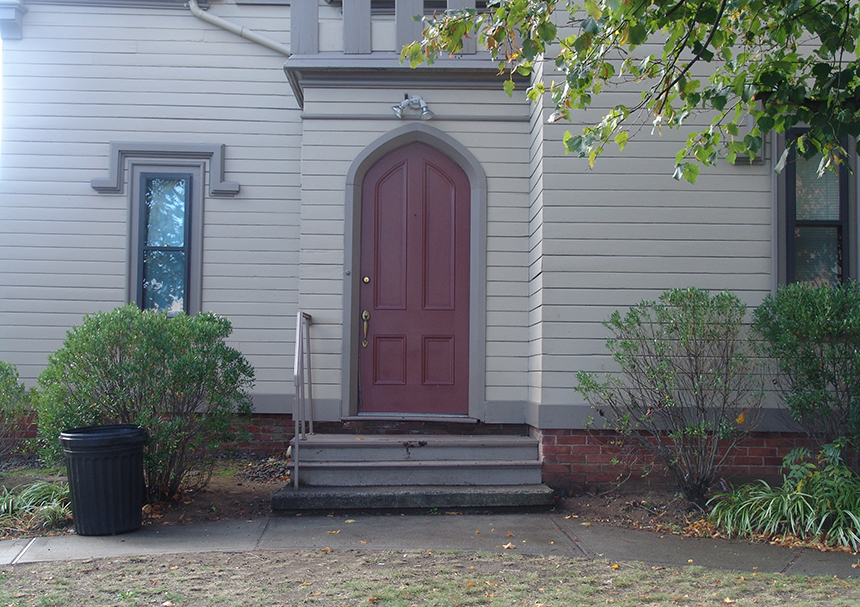
Outreach Street
RIHAP volunteers hit the streets seven nights a week year-round — it’s never too hot or too cold — in an attempt to reach as many people in need as possible. The two Brown University students are members of a group working to create awareness about homelessness, Housing Opportunities for People Everywhere (HOPE). It was Arellano’s second night of training, and the first for Buckholtz.
Volunteers head to areas within Rhode Island’s urban core where an individual or group has been reported to be in need of housing assistance. The first stop on the evening of Oct. 6 was the Grace Church Cemetery, nestled between Broad Street and Elmwood Avenue.
“People have been staying in here for years. It’s a good a place. No one really wants to come in here at night,” Lawlor said. “A lot of people stay here; it’s out of the way.”
Lawlor said homeless individuals often sleep on the steps of the caretaker’s house. He also noted that a person living in a tent was recently found in the cemetery.
“Be careful where you step,” he warned. “There are needles.” Freitas said that’s why they tell outreach volunteers not to wear sandals.
The group, using light from a cellphone, carefully walked through the cemetery, but found no one hanging out. Even the popular marble couch, fenced in among a collection of tombstones and often used as a bed by the homeless, didn’t have any visitors. There was a mattress lying on the ground about 10 feet away.
Lawlor told the students there is no trick to approaching people in need of assistance. He said respect the people who don’t want to speak with you.
“Just say, ‘Hi,’ and ask them how they’re doing,” he said. “We might be the only people they speak to all day. They’re real great people. They have no egos. But you don’t want to be a preacher or too motherly.”
The people the volunteers interacted with that night appreciated the attention. They shared good news and bad. They poured their hearts out. Some cried. They all thanked the volunteers for supporting, encouraging and listening to them.
The group spoke with a woman from Warwick on the cusp of becoming homeless. She was spotted going through items left scattered about a clothing donation bin. The woman said she was disturbed by the amount of social injustice in the world, and started to tear up when she spoke of her situation. She told the group about a woman living in a tent near a local Wendy’s. Volunteers will investigate that report on another night.
As the group moved about this section of the city’s South Side on this balmy night, Lawlor waved to a panhandler he knew by name standing on a concrete island as traffic whizzed by. He hugged a down-and-out-looking woman on the bus. He said hello to several other people by name.
“You see familiar faces a lot,” Lawlor said. “You also see folks not doing well. It’s hard. A lot of folks have been on the street for the last seven years, since the tent cities (Camp Runamuck and Hope City) were taken down. You can tell when someone has been on the street for a long time. They’re weather-beaten.”
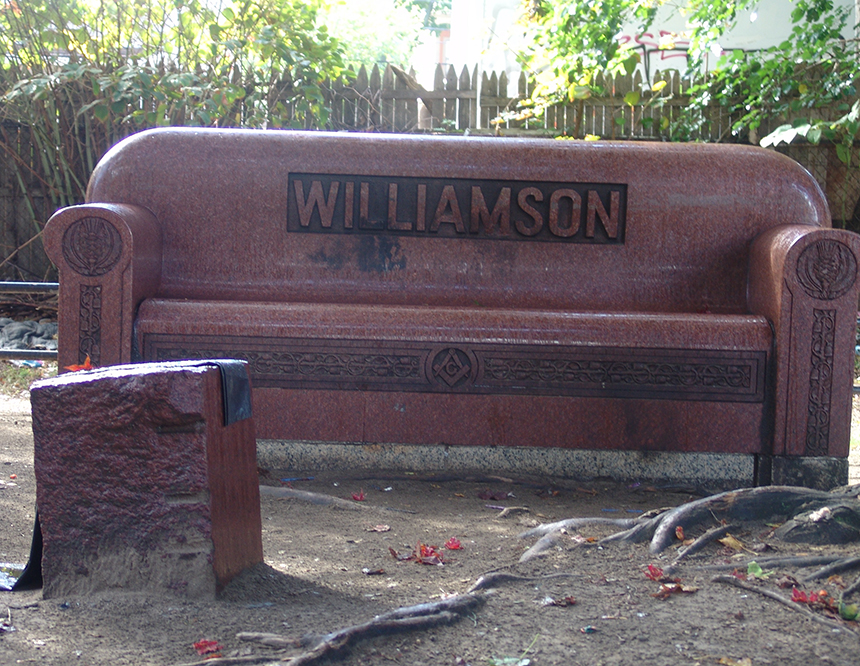
Seen but not heard
Freitas has spent the past three Legislative sessions lobbying to get the General Assembly to adopt minimum shelter standards. The Senate, she said, has been receptive to the idea, but the House has made it a low priority.
“Nick Mattiello keeps putting up roadblocks,” Freitas said of the House speaker. “He doesn’t think sex offenders should be sheltered. It’s really been watered down. I don’t know how much more we can water it down.”
Later that night, a crestfallen-sounding Freitas would tell ecoRI News, “You would think we could end this, but we don’t have the political will.”
In 2015, for the sake of comparison, Rhode Island adopted detailed housing and care standards for animal-care facilities.
Lawlor noted that society, or at least portions of it, treats the homeless as second-class citizens. He said numerous efforts to address homelessness by both the public and private sectors often leave out the people most knowledge about the issue: homeless people.
Homeless advocates, such as Lawlor and Freitas, and the nonprofits they work for or with don’t have enough money to solve the problem: build more affordable housing.
“We have good organizations working to alleviate the problem, but political will is lacking,” Lawlor said. “Affordable housing is the key. When someone has a roof over their head, we restore their dignity. No one wants to be homeless. No one’s saying I want to be a panhandler.”
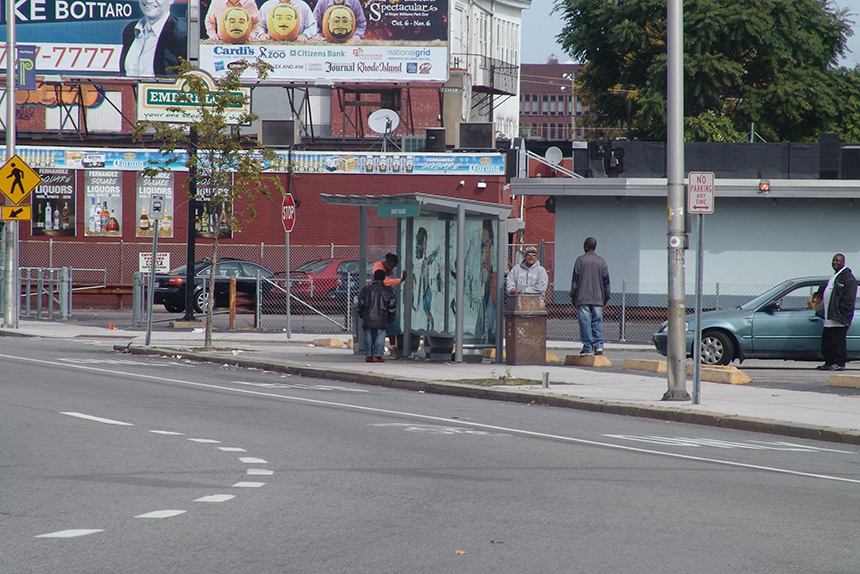
Recycled injustice
At a bus stop across the street from the caretaker’s house at Grace Church Cemetery, the activists watched an all-too-familiar situation play out — one that is routine here and across the country. Law enforcement being used as a social-service agency.
In this case, five Providence police officers were arresting two African-American men for each having an open container of alcohol in public. The weather-beaten-looking men being handcuffed had been quietly sitting on the bus stop bench drinking from a bottle or can wrapped in a brown paper bag. The police were professional and polite. Lawlor called the scene “foolish.”
Homeless individuals are more likely to be arrested for public intoxication, loitering and sleeping on a park bench simply because they lack a safe place to do otherwise.
“They’re going to keep them overnight or keep them for a few hours, and then they’ll be back out on the street with a record and given a fine they can’t afford to pay,” Lawlor said. “It’s a revolving door that accomplishes nothing.”
Lawlor said Greater Providence’s homeless are currently being chased from Kennedy Plaza, the Broad Street area and the Harrison Street area in Pawtucket.
“We’re just telling them to move,” he said. “It’s insanity. If we stopped and really looked at the problem, maybe we wouldn’t be afraid to deal with it.”
As the four activists approached the Broad Street bus stop, one of the officers asked who they were. Upon hearing they were with RIHAP, the officer said, “We’re happy to see you out here. We need more people out here offering help and providing services.”
He took a business card from the activists, and thanked them for their efforts.
After the police left with the two men in custody, the activists spoke at length with two people milling about the stop: a homeless woman just hanging out and a recovering drug addict waiting for the bus.
The woman, wearing jeans and a gray sweater, had been drinking and told the Brown University students her abusive husband had kicked her out of the house. She started crying when talking about what happened to her and about the people, with homes and without, who trash the city.
“Just because I’m homeless doesn’t mean I don’t have no morals or values,” she said. “I care about my environment.”
She said she cleans up bus stops and the islands were she panhandles, picking up cigarette butts and trash left by others.
Freitas told the woman to worry about herself. “You have to take care of yourself first,” she said.
The woman thanked the group, repeatedly, and then said he was going across the street to sleep in the cemetery. “Don’t worry, I have a blanket,” she said. “It’s a beautiful night.”
Lawlor gave her a bottle of water and an emergency blanket, like the ones given to marathon runners at the finish line. This interaction creates trust and moves the conversation forward for the next time outreach volunteers speak with the woman.
The Spanish-speaking man with a cane waiting for the bus recalled his days sleeping in the same cemetery. In slightly broken English, he said “no food,” “freezing” and “nasty smell.”
The man said his addiction to crack was the reason he became homeless. To demonstrate his recovery and disgust, he made a throwing motion to the ground and then stomped on an imaginary crack pipe. “No more crack,” he said.
“Living in the cemetery cold, no blanket,” said the man. He was wearing a black baseball cap, black windbreaker and shorts. “One day you have to stop. No more sleeping in cemetery. Believe me crack no good. When you have no money in your pocket, nobody likes you. You no good.”
He smiled proudly when talking about the apartment he now shares with a cat.
“Everybody is somebody,” Lawlor said. “We forget how easily it is to become homeless. A lot of people are living paycheck to paycheck — a divorce, death or you can’t work anymore and you could be on the street.”
Editor’s note: This is the third story in a four-part series looking at homelessness in Rhode Island.
Story 1: Rising Rhode Island Rents Drive Homelessness
Story 2: Low Wages Minimize Rhode Island’s Economy
Story 4: There’s No Place Like a Home to Make Life Better

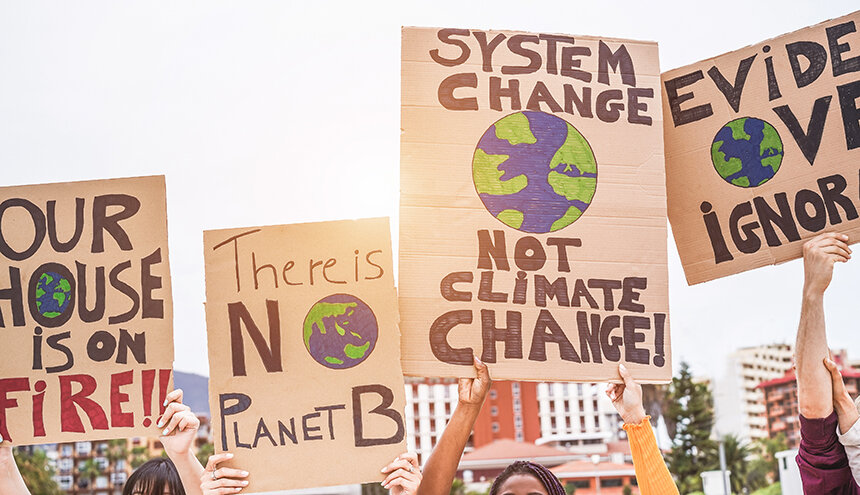

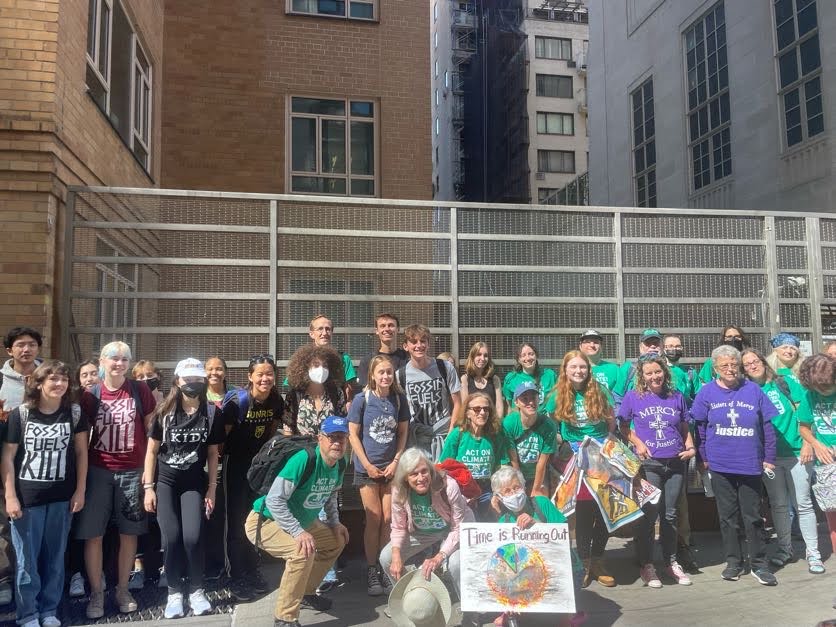
A large percentage of what drives housing policies is the belief in infinite economic growth on a finite planet. It seems to give the rich license to steal. And their stealing (like the entire crash of 2008) drives community destruction and homelessness.